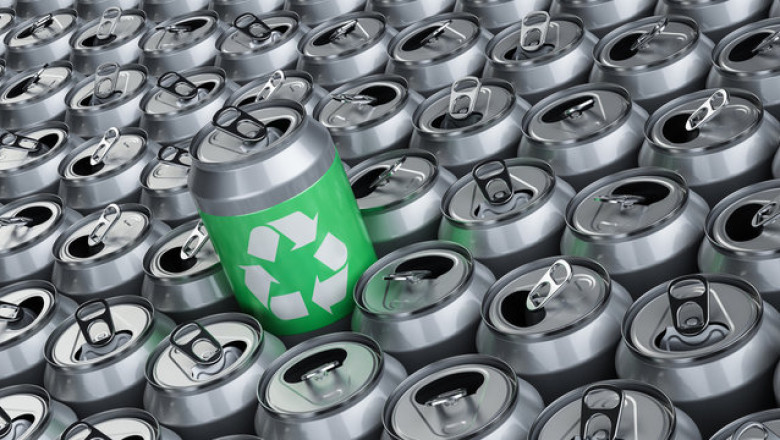views
The Growing Significance of Recycled Metal in Our Lives
Metal Waste A Looming Environmental Threat
The ever-increasing consumption of metal products in modern society has led to a massive rise in metal waste. With each passing year, millions of tons of discarded items like cars, appliances, construction debris, and packaging end up in landfills. Left unprocessed, this metal waste poses serious environmental risks. Toxic chemicals can leach into the soil and water sources from corroding metal scraps in dumpsites. The production of new metal also requires huge amounts of energy which contributes to carbon emissions and pollution. Recycling metal helps address this waste problem and makes industries more sustainable.
Economic and Environmental Benefits of Metal Recycling
Recycled Metal provides significant economic and ecological advantages compared to mining virgin ore. It takes much less energy to reprocess scrap metal than extracting and processing raw materials. For example, recycling aluminum saves over 90% of the energy required to produce new aluminum from bauxite ore. Similarly, recycling steel reduces pollution and energy usage by about two-thirds compared to producing steel from iron ore. This translates to major cost savings for industries and reduces their carbon footprint. Recycled metals also allow industries to reuse a valuable resource instead of relying on limited reserves of ores and minerals. This extends the life of our natural resources and slows the pace of depletion.
Advanced Technologies Driving Higher Recycling Rates
Modern recycling plants employ automated sorting systems using robotics, sensors, machine vision, and AI to efficiently separate different types of metals, even when mixed together. Powerful magnetic separators isolate ferrous metals while advanced optical scanners identify non-ferrous alloys based on their unique spectral properties. Such technologies have significantly improved the yield and purity levels of recycled metals. This has encouraged more metal-intensive industries to use scrap as a reliable alternative to virgin raw materials. Higher recycling rates also mean lesser waste that ends up in landfills or as diffuse litter in the environment. Advanced smelting methods allow alloys and impurities to be more completely removed from recycled scrap for reuse in high-quality applications. Continued technological advancements are expected to make metal recycling even more efficient and economical in the coming years.
Popular Products and Applications
From appliances to automobiles to infrastructure, they play a vital role in our daily lives. Many common household appliances like washing machines, dishwashers, and air conditioners contain around 60-70% recycled steel and aluminum. Automakers also rely heavily on recycled metal - a typical passenger car is made of over 75% recycled steel. Recycled content remains an important sustainability criterion for green building materials as well. Recycled steel, aluminum and other non-ferrous metals feature prominently in infrastructure projects for roads, bridges, utility poles, and water pipes due to their strength, corrosion resistance and recycled material content. Electronic devices and packaging also offer major opportunities to reuse valuable metals through recycling. As circular economy principles gain traction globally, the applications of quality recycled metals will continue expanding across various industries.
Stimulating Wider Participation through Awareness and Incentives
While industrial and commercial recycling is well established, awareness and participation rates remain relatively low in the residential sector. Many consumers are still unaware of what items can be recycled or do not make recycling a habit due to inconvenience. Coordinated efforts by municipal authorities, non-profits, and industry groups are working to boost recycling through community outreach programs. These emphasize the environmental benefits and educate people about local recycling programs and guidelines. Incentive-based strategies like pay-as-you-throw policies are also used to nudge more people into recycling. Cash or non-cash rewards have proven effective in some regions for sustainable behaviors like curbside collection of specific metal scrap. Looking ahead, optimizing existing collection infrastructure and raising public awareness will be key to further strengthen the recycling culture and close material loops effectively.
recycled metal delivers invaluable economic and ecological value for industries and society as a whole. Recent advancements are enhancing recycling rates and the quality of recovered metals. Continued innovation, policy support and public participation hold the promise of building a truly circular economy powered by sustainably sourced recycled materials. With collaborative effort, we can maximize the utilization of our precious metal resources and minimize environmental impacts for the benefit of present and future generations.
Discover the Report for More Insights, Tailored to Your Language:
About Author:
Money Singh is a seasoned content writer with over four years of experience in the market research sector. Her expertise spans various industries, including food and beverages, biotechnology, chemical and materials, defense and aerospace, consumer goods, etc. (https://www.linkedin.com/in/money-singh-590844163)






















Comments
0 comment